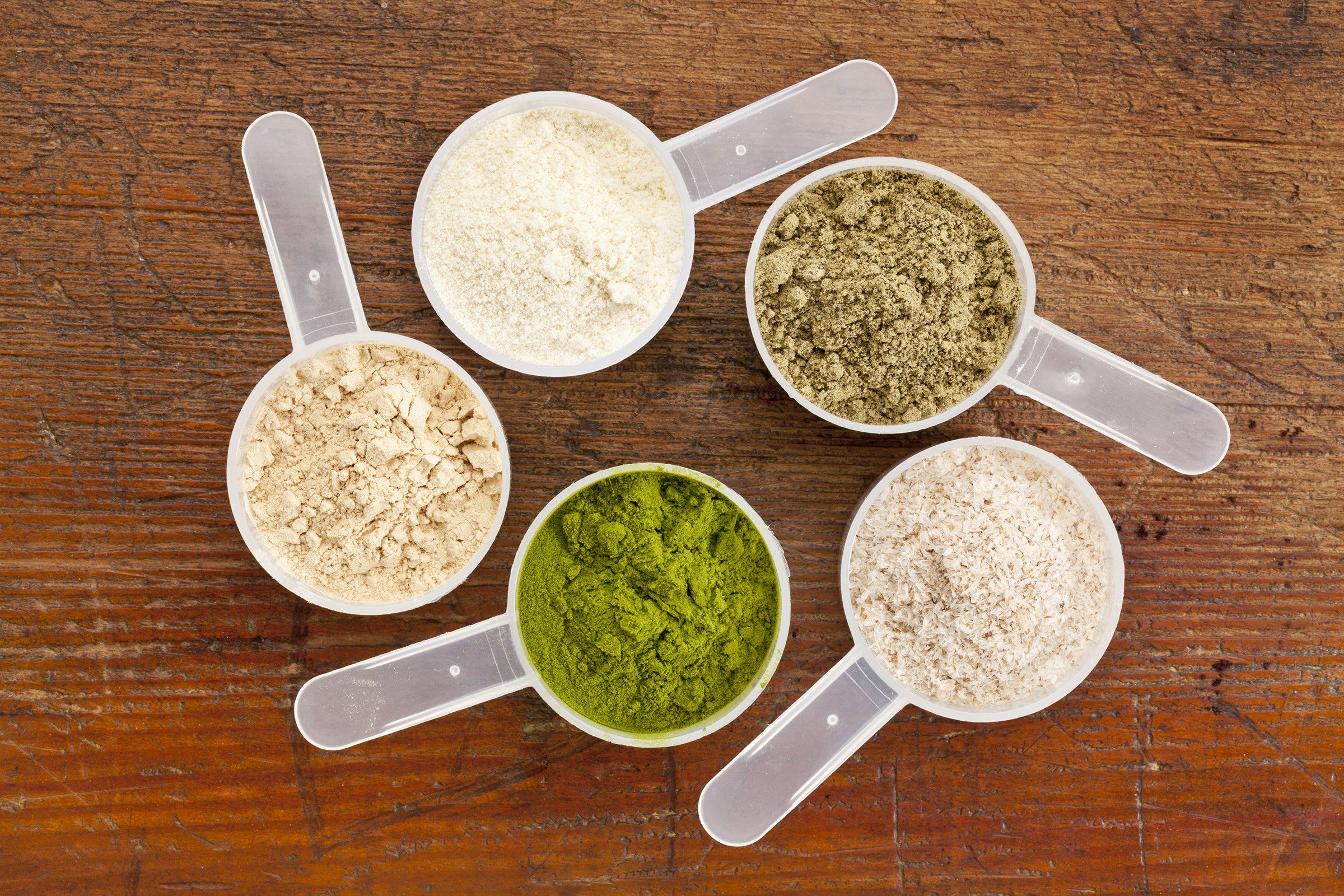Protein from Plants?

(Photo: Marekuliasz / Shutterstock)
Scientific research has unequivocally proven that daily protein supplementation builds muscle, increases strength and supports fat loss. For decades, we have heard about the pros and cons of egg, whey and casein protein supplements, and it is apparent that milk proteins (whey and casein) monopolize the protein-powder market.
As anyone who supplements with protein powder knows, whey protein isolate currently reigns as the anabolic gold standard, while micellar casein is the benchmark for anti-catabolic nighttime protein supplements. But what is it that makes these milk proteins work so well for building and maintaining muscle? Well, scientists speculate that their main effects result from milk’s high concentrations of essential amino acids, including particularly high levels of branched-chain amino acids. Beyond that, high-quality whey isolate naturally contains BCAAs in a 2:1:1 (leucine:valine:isoleucine) ratio, which has been proven ideal for muscle building. Finally, to put the icing on the cake, pure whey isolate is virtually carb- and fat-free and is chock-full of arginine, glutamine and alanine, amino acids that further support growth and promote fat loss.
Supplement research-and-development teams are continually pushing the envelope to produce new protein products, and with the advent of new isolation and filtering technologies, several alternative plant-source protein supplements have hit the market. Some are touted to be comparable to whey, while others are available as alternatives to animal proteins. Here we review four of the most prevalent plant-protein sources.
Pea Protein Isolate
Pea protein isolate is becoming popular among vegan bodybuilders, those who prefer proteins from non-GMO (genetically modified organism) sources (most pea protein supplements are non-GMO), and/or those who have intolerance to milk proteins. Good-quality pea protein isolate contains high levels of the BCAAs (comparable to whey isolate) in that ideal 2:1:1 (leucine:valine:isoleucine) ratio. Furthermore, like whey isolate, pea protein isolate is highly digestible and extremely high in glutamine and arginine. Good products tend to be 80 to 85 percent protein and contain modest amounts of fat (about 2 grams) and about 1 gram of fiber in a 30-gram scoop.
Benefits/Drawbacks: Pea protein’s high digestibility and comparable amino-acid profile to whey make it an ideal supplement for vegetarians or those with milk allergies. Its low price point makes it very desirable to those who need a great protein source but have a tight budget.
Related: How to Choose a Plant-Based Protein Powder
Soy Protein Isolate
Soy protein powder comes from isolating the protein in soybeans and has been used by vegetarians and health fanatics for many decades. Using the advanced isolation technologies available today, many products contain as much as 90 percent protein per serving. Although soy protein’s amino-acid profile is not as robust as whey’s, it is still a reasonable alternative for those who are looking for a non-animal-based protein source.
Benefits/Drawbacks: Although soy protein contains phytoestrogens (compounds whose molecular structure is similar to that of the female sex hormone estrogen), the most recent evidence suggests that it’s beneficial for muscle growth. In addition, contrary to what the rumors might have you believe, soy protein does not lower testosterone levels. The isoflavones found in soy protein have been shown to have profound health benefits. Recent research has reported that soy protein supplementation contributes to improvements in cardiovascular and bone health. Additionally, research supports its benefits for women during menopause and indicates that it might contribute to cancer prevention in premenopausal women. Compared to whey, soy protein has high levels of arginine, the amino acid involved in nitric-oxide and growth-hormone production.
Rice Protein Concentrate
This stuff is made from whole-grain brown rice and has an amino-acid profile that rivals whey isolates. To illustrate, rice protein contains a similar concentration of BCAAs and has comparable glutamine and alanine levels but more than four times the arginine. At this point, isolate forms of rice protein are rare, so as a concentrate, it has a lower protein per serving (80 percent) than whey isolate (90 to 95 percent). This isn’t really an issue, though, because rice protein concentrate is virtually fat-free, and the only carbs it contains are usually in the form of fiber (up to 2.4 grams per scoop).
Benefits/Drawbacks: Rice protein’s amino-acid profile makes it a viable option for vegans or those with milk allergies, and its high-fiber content slows digestion and may help to regulate blood glucose levels.
Related: Soy Facts & Fiction
Hemp Protein Concentrate
No, this protein source was not developed for bodybuilding hippies, but it is a vegan alternative to animal-based protein products. Like milk, hemp has two constituent proteins: edestin and albumin. Edestin makes up about 65 percent, and albumin makes up the other 35 percent. Research suggests many nutritional benefits to hemp protein ingestion because it contains relatively high amounts of essential omega-3 and omega-6 fatty acids (about 3 grams per serving) and fiber (up to 5 grams per serving). However, it only contains about 50 percent protein per scoop and has an amino-acid profile that’s less robust than whey’s.
Benefits/Drawbacks: High-fiber and essential-fatty-acid content make hemp protein something you may want to add to a meal-replacement shake. Mixing it with whey or one of the other proteins outlined here would bolster the protein content and amino profile.